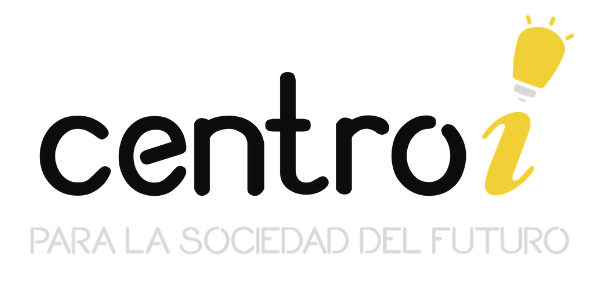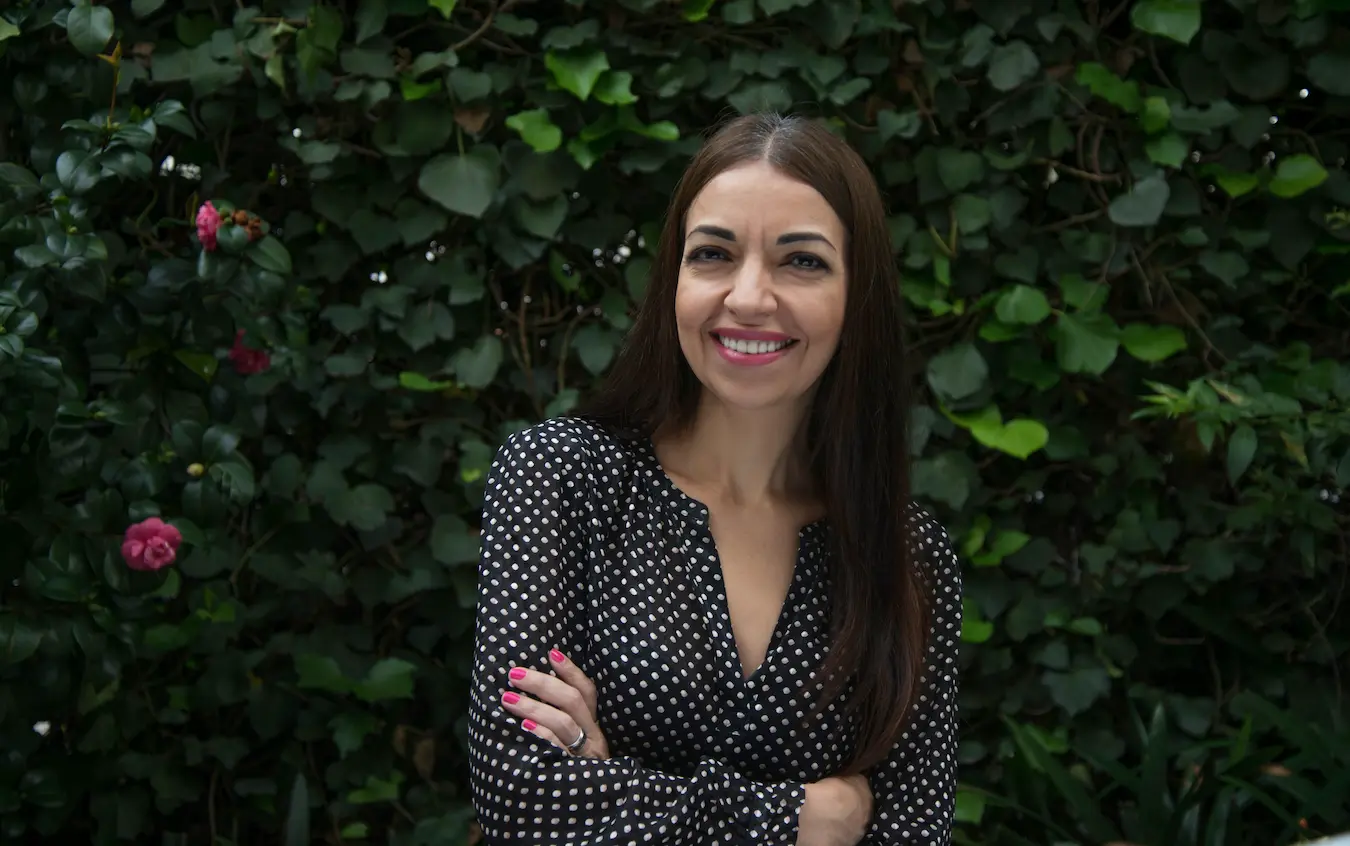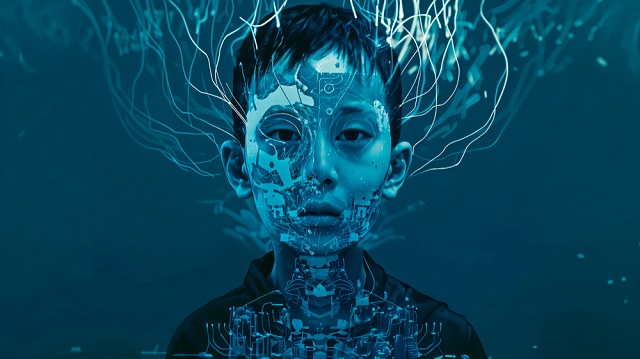In the virtual offices of Centro-i para la Sociedad del Futuro in Mexico City, Elena Estavillo sits at the intersection of humanity and technology. As the CEO of this influential think tank, she’s not just observing the AI revolution – she’s actively shaping how it unfolds across Latin America and beyond. Her mission is clear: to ensure that artificial intelligence serves everyone, not just the privileged few.
“Ethical AI is AI that’s designed and deployed to respect human rights, promote fairness, and minimize harm—ensuring it benefits society as a whole, not just a select few,” Estavillo explains, her economist’s precision evident in how she frames complex issues. “At its core, ethical AI means aligning innovation with values that uplift humanity.”
This vision didn’t materialize overnight. Estavillo’s journey to becoming Mexico’s leading voice on ethical AI and digital inclusion began with her studies in economics, driven by a fascination with human behavior and social phenomena. Her path led through telecommunications regulation as a commissioner at Mexico’s Federal Telecommunications Institute (IFT), where she witnessed firsthand how digital technologies could either bridge or widen societal divides.
“My career took me into telecommunications and regulation,” she recalls, “where I saw firsthand the societal impact of digital technologies. This sparked my interest in their ethical implications and looking for ways to harness technology as a force for good.”
Building Bridges in a Divided Digital World
When Estavillo founded Centro-i, her vision was to create a think tank that bridges technology and societal well-being. “I wanted to tackle the gaps in digital inclusion and ensure tech development respects human rights,” she says. Over time, this vision evolved to emphasize ethical AI governance, gender equity, and democratic principles even more, adapting to the rapid rise of AI.
Her diverse background across public and private sectors has given her a unique perspective. “My leadership style and approach to technology policy have been molded by a mix of public and private sector experiences,” Estavillo explains. “Serving as a commissioner at Mexico’s Federal Telecommunications Institute taught me to build transparent, inclusive systems, while founding Centro-i honed my knack for innovation and foresight.”
This breadth of experience proved invaluable when establishing Centro-i, which has positioned itself as a leading voice in tech ethics both locally and globally. The organization is now part of the Global Network of Internet and Society Centers, coordinated by Harvard’s Berkman-Klein Center – a testament to Estavillo’s ability to elevate Mexican thought leadership onto the world stage.
Breaking Barriers in a Boys’ Club
Estavillo doesn’t shy away from acknowledging the challenges she’s faced as a woman in tech. “Early on, being a woman in economics and tech meant constantly proving myself in rooms where I was the only woman, and also the only person aware of the need to foster fairness,” she reflects.
Her time at the IFT was particularly challenging. “The telecom sector was a boys’ club, and building credibility as a regulator was tough—you’re up against powerful interests who don’t love change.” She pushed for progressive internal policies like remote work and parental leave for both mothers and fathers, setting an example for the whole sector.
These experiences inspired Estavillo to co-found Conectadas, a network dedicated to promoting women’s inclusion in the digital economy. “Conectadas has led many initiatives, bringing visibility to female experts and on the multiple reasons why a more inclusive digital sector is beneficial for society, not only in terms of fairness, but also for innovation and economic development,” she notes. The network has been recognized internationally, being named a WSIS Champion in 2020.
Her commitment to women’s rights and leadership has also led to her current role as vice president at International Women’s Forum (IWF) Mexico.
The Ethics of Artificial Intelligence
As AI systems become increasingly powerful and pervasive, Estavillo is at the forefront of ensuring they develop ethically. Through her role at Centro-i and as a member of UNESCO’s Women4 Ethical AI, she’s involved in global initiatives to implement UNESCO’s Recommendation on the Ethics of AI, with a particular focus on gender equality throughout the AI lifecycle.
“Organizations should prioritize principles like transparency, so users understand how AI decisions are made; accountability, to address unintended consequences; and inclusivity, to prevent biases that deepen inequality,” she asserts.
When asked about the most pressing risks of AI today, Estavillo points to three main concerns: “Bias amplifying existing inequalities, lack of transparency eroding trust, and unchecked power concentrating in a few hands, merging political, economic and communicational power. These can deepen social divides, undermine democracy, and destabilize economies if ignored.”
Her prescription for addressing these challenges is equally clear: “To curb AI biases and ensure fairness, we need policies and standards for diverse datasets, regular bias audits, transparent decision-making, and accountability.” She emphasizes the importance of global standards like UNESCO’s AI Ethics Recommendation, which need to be tailored locally and turned into practical methodologies.
The Gender Dimension of Technology
Estavillo’s commitment to gender inclusivity in tech comes from a place of both personal experience and observed injustice. “My commitment stems from seeing firsthand how women, especially in places like Mexico, are sidelined in digital spaces—whether as users or creators,” she explains. “I’ve met brilliant women held back by systemic barriers, and that injustice drives me.”
She’s keenly aware of the persistent barriers women face in AI and tech: “Women in AI and tech face underrepresentation, especially in leading roles, bias in education, unwelcoming workplaces, pay gaps (10-20% less), and a ‘leaky pipeline’ from stereotyping, caregiving or glass ceilings.”
Her solution is systemic rather than putting the onus on women to change: “To break these, we need to fix the system, and avoid the ‘fix-the-women’ approach, which means blind hiring, fair evaluation, pay equity, flexible work for all, sponsorship, equal representation in every decision-making space, addressing toxic education and work environments—rewiring the system so women lead in tech.”
For young women entering the field, Estavillo offers empowering advice: “First, own your voice—your points of view as a woman with your specific lived experience, needs and perspectives are a strength, not a liability. Second, build your skills relentlessly. Third, find allies—mentors, networks—who lift you up and are ready to help and sponsor you. And finally, don’t just adapt to the system; reshape it.”
The Road Ahead: AI’s Future and Potential
Looking to the future, Estavillo forecasts significant trends in AI over the next five years: “I foresee AI’s next five years defined by trends like agentic systems and reshaping labor markets. We’ll see heightened awareness of the need for organizations and individuals to understand and wield AI, alongside geopolitical shifts as nations vie for AI supremacy, fueling innovation but also tension.”
She’s particularly interested in AI’s potential to drive social impact in emerging markets: “I see AI driving social impact in emerging markets by improving education, healthcare, economic inclusion, and agriculture, prominently. Success depends on affordable tech, building local infrastructure, like compute power, local language models, and training to ensure it narrows, not widens, digital divides—done right, AI can truly level the playing field.”
At Centro-i, Estavillo is putting these principles into practice. “Right now, at Centro-i we are working with the support of SoftServe on an app that uses AI to help women facing domestic violence. These are the types of AI use cases that we call ‘AI for good’ where this technology can be used to solve real life problems, especially for marginalized groups.”
Collaboration Over Competition
When asked about what advice she’d give to future leaders in AI and digital governance, Estavillo’s response reflects her global perspective: “AI and digital governance need global collaboration. We should move away from the ‘race mode’ if we want to develop technologies that build a better world for everyone, one that is peaceful and sustainable.”
This collaborative approach has been central to her work at Centro-i, where she brings together stakeholders from government, industry, and civil society to address complex issues in technology policy. “This diversity of perspectives is key,” she says. “It’s why I bring government, industry, and civil society together to tackle complex issues, ensuring solutions—like ethical AI or broader tech access—are practical and impactful.”
A Legacy of Inclusion and Ethical Technology
Reflecting on her career achievements, Estavillo points with pride to her role as a founding commissioner of Mexico’s Federal Telecommunications Institute from 2013 to 2019. “We built a regulatory body from scratch that became a model for other countries, promoting competition and access in telecoms. That was huge—helping connect millions of people, many in underserved communities, to the digital world.”
The establishment of Centro-i and co-founding Conectadas also rank high among her accomplishments, representing her commitment to building institutions that outlast any individual leader.
As for the legacy she hopes to leave, Estavillo’s answer is both personal and universal: “I’ve walked a path that’s not always been straightforward. I’m an economist by training, with a PhD from the University of Paris, but I’ve spent my career bridging technical fields like telecommunications, digital ecosystems and antitrust with social goals like inclusion, equality and women’s rights. As a woman, a Mexican, Latina and a voice from the Majority World, I understand the systemic barriers—whether it’s access to education, representation, or being heard in male-dominated spaces.”
Her closing metaphor perfectly captures her philosophy: “I try to show that you can break into these areas, not just to succeed personally, but to reshape them for others, to bring about change. When we succeed in getting to the elevator, we have to make sure to send it back and keep it moving.”
The Ethical Imperative
As AI capabilities accelerate at a breathtaking pace, Estavillo’s work reminds us that the most important questions aren’t just technical but ethical and social. The choices we make now about how AI is developed, deployed, and governed will shape our societies for generations to come.
Through her leadership at Centro-i, her advocacy with UNESCO and Conectadas, and her personal example as a pioneering woman in tech, Elena Estavillo is ensuring that these crucial conversations include voices from Latin America and perspectives that prioritize human rights, inclusion, and fairness.
In a field often dominated by technical considerations and market forces, Estavillo brings a human-centered approach that asks not just what AI can do, but what it should do – and who it should serve. As she puts it, “Responsible AI development is vital for economic growth and innovation because it ensures AI is ethical, transparent, and inclusive, driving efficiency and new opportunities across industries while avoiding pitfalls like inequality or mistrust, or harms to safety and democracy.”
This vision of responsible innovation – where technological advancement and human welfare make progress together – is Elena Estavillo’s guiding star. In a rapidly evolving technological landscape, her unwavering commitment to ethics, inclusion, and human dignity provides a vital compass for navigating the challenges and opportunities that lie ahead.





